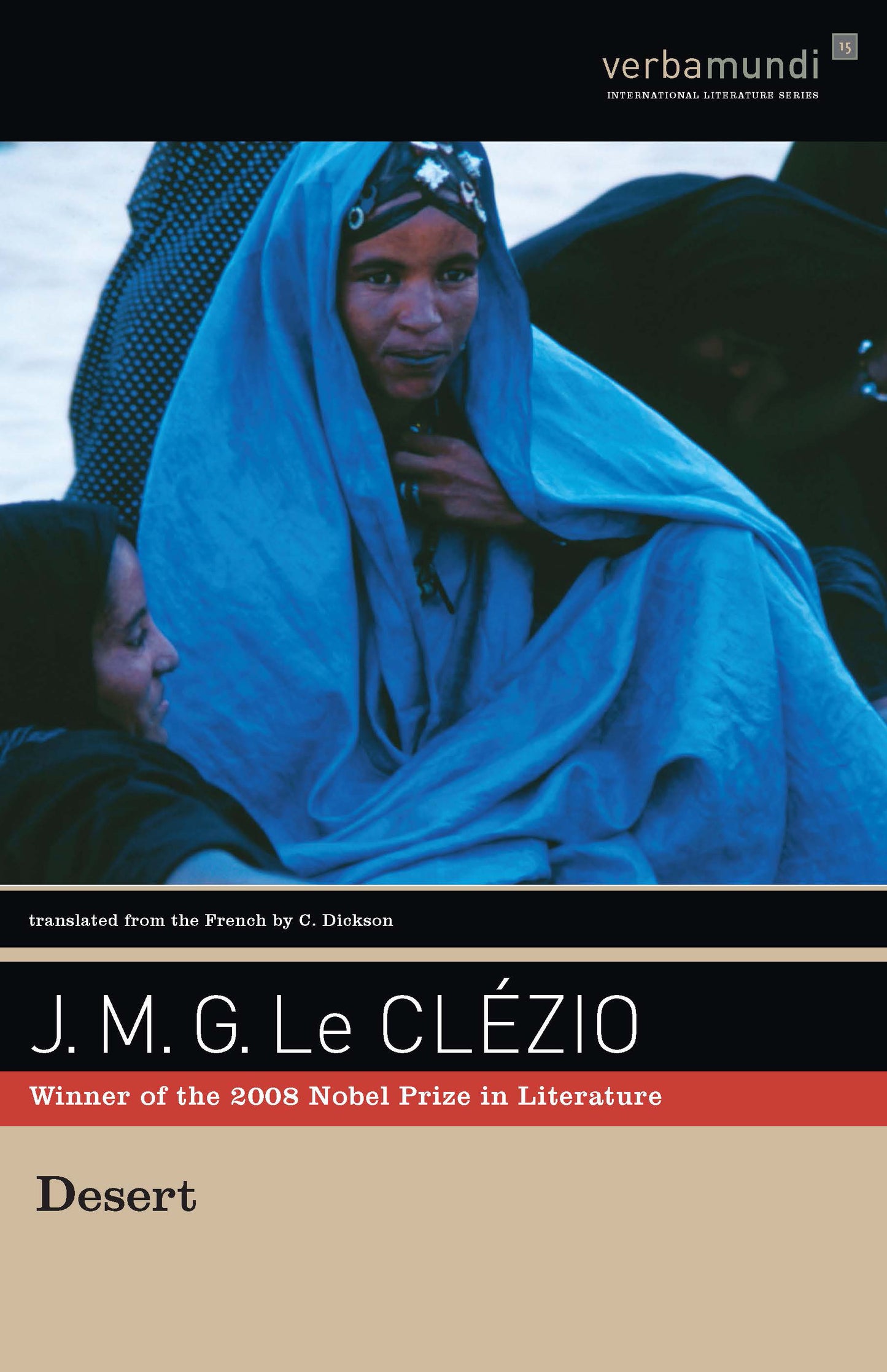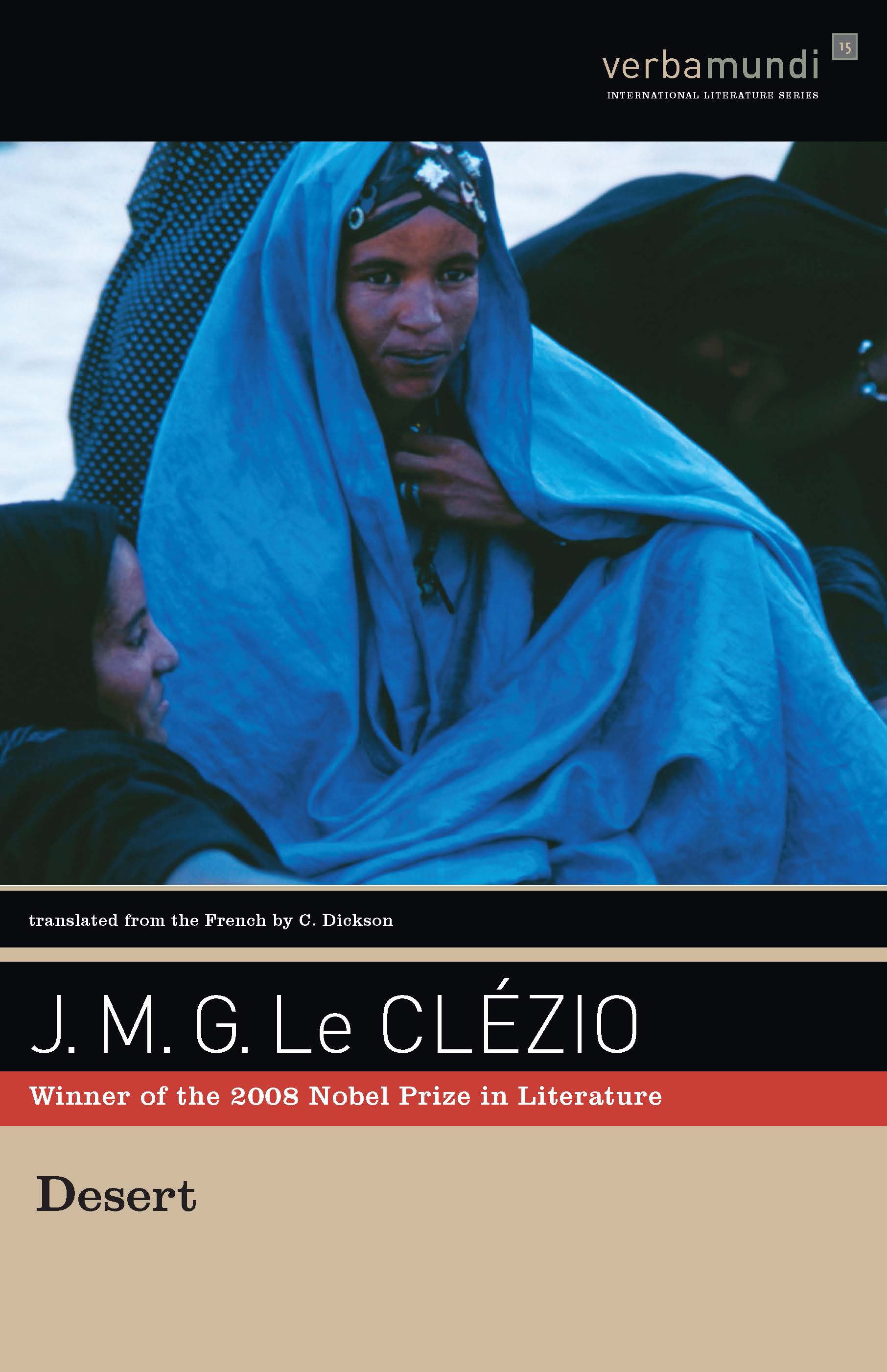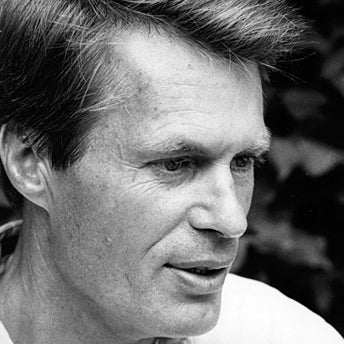
Winner of the 2008 Nobel Prize in Literature
The Swedish Academy, in awarding J.M.G. Le Clézio the 2008 Nobel Prize in Literature, praised Desert as Le Clézio's "definitive breakthrough as a novelist." Published in France in 1980, Desert received the Grand Prix Paul Morand from the Académie Française, was translated into twenty-three languages, and quickly proved to be a best-selling novel in many countries around the world.
Available for the first time in English translation, Desert is a novel composed of two alternating narratives, set in counterpoint. The first takes place in the desert between 1909 and 1912 and evokes the migration of a young adolescent boy, Nour, and his people, the Blue Men, notorious warriors of the desert. Driven from their lands by French colonial soldiers, Nour's tribe has come to the valley of the Saguiet El Hamra to seek the aid of the great spiritual leader known as Water of the Eyes. The religious chief sends them out from the holy city of Smara into the desert to travel still further. Spurred on by thirst, hunger, and suffering, Nour's tribe and others flee northward in the hopes of finding a land that can harbor them at last.
The second narrative relates the contemporary story of Lalla, a descendant of the Blue Men. Though she is an orphan living in a shantytown known as the Project near a coastal city in Morocco, the blood of her proud, obstinate tribe runs in her veins. All too soon, Lalla must flee to escape a forced marriage with an older, wealthy man. She travels to France, undergoing many trials there, from working as a hotel maid to becoming a highly-paid fashion model, and yet she never betrays the blood of her ancestors.
Desert is a rich, sprawling, searching, poetic, provocative, broadly historic and demanding novel, which in all those ways displays the essence of Le Clézio. As a reflection on colonization and its legacy, it is painfully relevant after 30 years. . . . There is an element of the missionary in Le Clézio, just as there is still something of the rebel in him, in search of the new novel, trying to break loose from the traditional bonds of fiction and language to mirror a wider world—as the Nobel citation described, to explore "a humanity beyond and below the reigning civilization." Beneath his pantheism and ethnology, there is also a serious critic of contemporary Western civilization and its rationalism, pointing out the conflict between nature and cities, the disconnect between man and mythology. —Elizabeth Hawes, The New York Times Book Review
When French writer Le Clezio was presented with the Nobel Prize for Literature in 2008, the response of many Americans was, Who? That's because so few of his stunning works have been translated into English, including this 1980 fever dream of a novel about earth and spirit, war and exile. In poetic language at once piercingly realistic and rhapsodically supernatural, Le Clezio tells the dramatic stories of two mystical, resilient children of the North African desert, members of a nomadic tribe of warriors. Nour endures a horrific forced march across the desert just prior to World War I, as French soldiers invade and a holy sheik struggles to keep the planet's last free people free. Decades later, Lalla, a shantytown seer channeling the hidden life force of the forbidding desert, is forced to flee Morocco for Marseilles, where she witnesses the misery of other despised immigrants. In scenes of shimmering intensity, Le Clezio contrasts nature's stark and majestic clarity, from scouring sand to the incinerating sun and the vast gleaming net of stars, with the chaos, toxicity, and injustice of human life. A long time coming for English-language readers, Le Clezio's incandescent masterpiece couldn't be more relevant. —Donna Seaman, Booklist
One of the few works by 2008 Nobel laureate Le Clézio to be translated into English, this mythic novel tells two parallel stories of descendants of a holy man called Al Azraq. The novel begins with Nour, a Berber boy who bears witness to the failed rebellion led by Sheik Ma el Aïnine against the French in the years leading up to WWI. In the cadences of an incantation, Le Clézio renders the dire suffering of the displaced desert peoples who turn to Ma el Aïnine for guidance. The parallel story, set in the near-contemporary, portrays Lalla, a young woman who lives on the Moroccan coast and spends her days exploring the seashore and listening to the stories of her aunt and the fisherman Old Naman. After escaping an arranged marriage, Lalla lands in Marseille and finds not the gleaming white city of Naman's stories but a cruel place cut off from nature. Le Clézio's vision is cinematic, his language lyrical and the lives he portrays are vivid and convincing. —Publishers Weekly
Le Clézio's Desert is a singular jewel, doing what we often ask world literature to do these days—namely, to cross cultural divides that, at least on the political front, appear increasingly fraught with random checkpoints and identity cards. Long before Dave Eggers's What is the What (2006), Le Clézio successfully depicted a panoply of displaced peoples who nonetheless felt at home in the forbidding sands of present-day Morocco. [. . .] Whether one's analysis favors the word "terrorist" or "blowback," it appears that we are once again pitched on an intractable and irreconcilable dichotomy of identity, one in which the "us or them" formula has acquired an internal logic and rationale on both sides of the divide. We need, therefore, to return to the otherworldly humanity of the desert; now more than ever, we need to read nomadic texts that frustrate the rigidly perceived categories of human interaction. That Desert makes it look easy testifies to Le Clézio's talent as a writer—because it's the hardest thing in the world to unsettle a default setting. Begin again with Desert. —Kevin Carollo, RAINTAXI
This work contains magnificent images of a lost culture in the North African desert, contrasted with a depiction of Europe seen through the eyes of unwanted immigrants. The main character, the [Moroccan] guest worker Lalla, is a utopian antithesis to the ugliness and brutality of European society. —from the Nobel citation by the Swedish Academy


